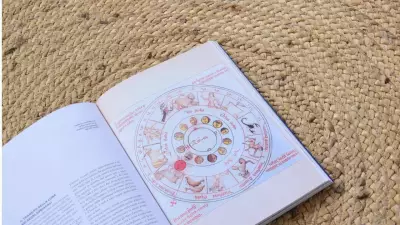
With winter season intensifying across North India, medical experts are raising urgent concerns about pneumonia prevention, emphasizing that timely diagnosis remains the most critical factor in combating this potentially fatal respiratory infection.
Why Early Detection Matters in Pneumonia Cases
Dr. Naveen Bajaj, a renowned paediatrician and neonatologist from Nehru Hospital, has highlighted the life-saving importance of recognizing pneumonia symptoms early. Pneumonia claims approximately 800,000 young lives globally each year, making it one of the leading causes of death among children under five years old.
The expert explained that pneumonia typically begins as a common cold or flu but can rapidly progress to severe respiratory distress. "Many parents dismiss early symptoms as routine seasonal illness, but when cough persists beyond three days with high fever and breathing difficulties, immediate medical consultation is crucial", Dr. Bajaj warned during an awareness session at a local school in Jalandhar.
Vulnerable Groups and Prevention Strategies
Certain populations face significantly higher risks of developing severe pneumonia complications. Children under two years, elderly adults above 65, and individuals with compromised immune systems constitute the most vulnerable groups requiring extra vigilance.
Dr. Bajaj outlined essential preventive measures that can dramatically reduce pneumonia incidence:
- Complete vaccination schedule including pneumococcal conjugate vaccine (PCV)
- Exclusive breastfeeding for infants during first six months
- Proper nutrition and hygiene practices
- Avoiding exposure to air pollution and cigarette smoke
- Regular hand washing and respiratory etiquette
The paediatrician particularly stressed the importance of vaccination, noting that immunization prevents nearly 50-60% of severe pneumonia cases in children.
Recognizing Critical Warning Signs
Medical professionals urge families to watch for specific danger indicators that necessitate immediate hospital care. These include rapid breathing, chest indrawing, high-grade fever that doesn't subside, bluish discoloration of lips or nails, and extreme lethargy.
"When a child breathes faster than normal, with nostrils flaring and chest retracting, these are clear emergency signals", Dr. Bajaj emphasized. Counting respiratory rate provides a simple yet effective assessment tool that parents can use at home to determine when to seek medical help.
For infants under two months, any breathing difficulty or feeding problems warrant immediate medical evaluation, as their condition can deteriorate rapidly without visible typical symptoms.
With proper awareness, timely intervention, and preventive healthcare measures, countless pneumonia-related deaths can be avoided each year. Medical authorities continue to advocate for increased public education about this serious but preventable disease.





